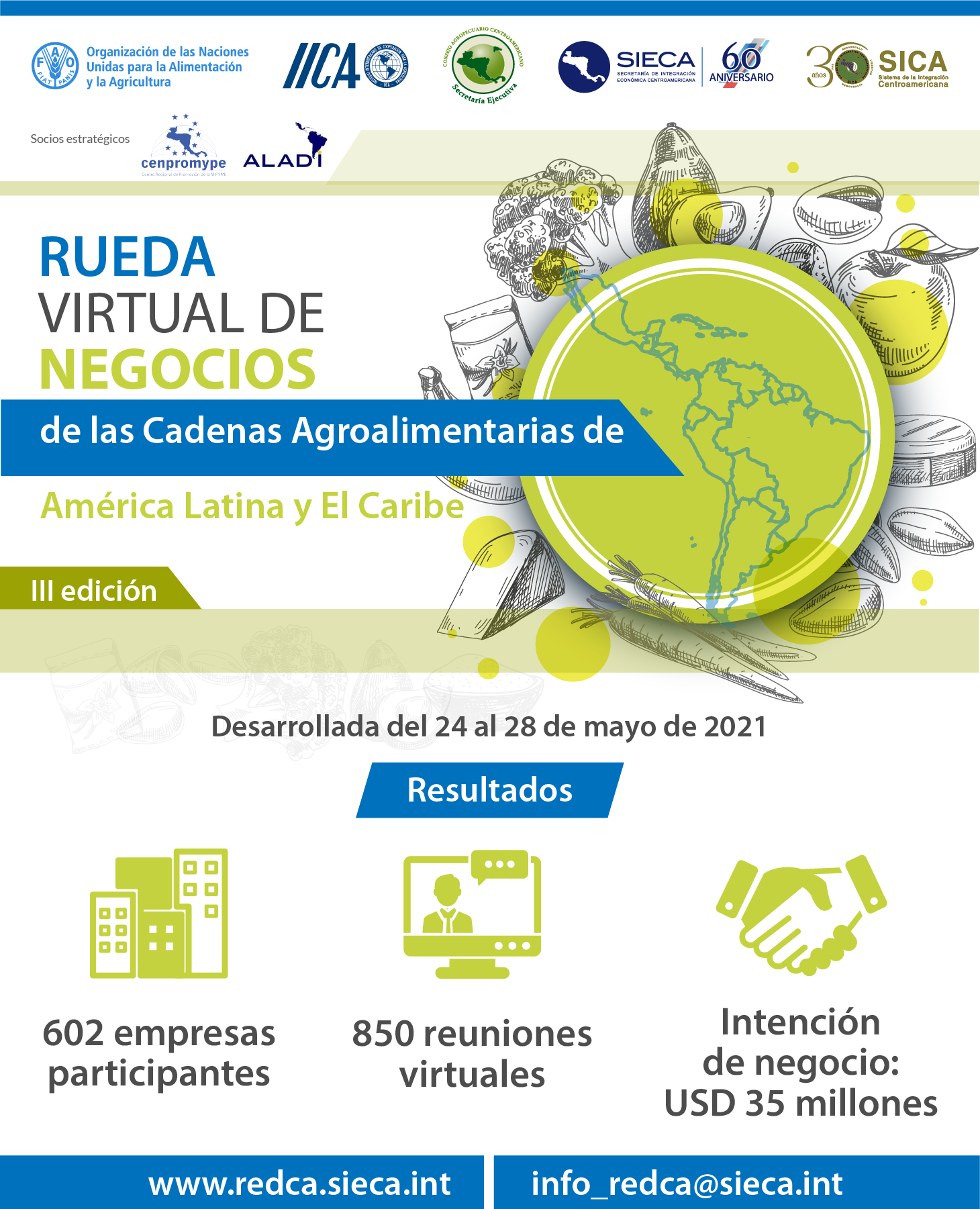The event was held from May 24-28 and included the participation of over 600 companies from America, Asia, and Europe.

San Jose, 7 June 2021 (IICA) – The third edition of the Virtual Business Roundtable of the Agrifood Chains of Latin America and the Caribbean resulted in tentative business deals, valuing more than USD 35 million. Six hundred and two small and medium enterprises (SMEs) from the sector participated in the event, which included 850 virtual meetings with the potential for future trade.
The purpose of the meetings was to promote networking among agrifood SMEs during the pandemic. This edition of the event was attended by buyers and sellers from Argentina, Bolivia, Brazil, Chile, Colombia, Costa Rica, Cuba, Dominican Republic, Ecuador, El Salvador, Guatemala, Honduras, India, Mexico, Nicaragua, Panama, Paraguay, Peru, Spain, Uruguay, and Venezuela.
Buyers from Belgium, China, Spain, and the United States also participated.
The virtual business roundtable was held using the platform of the Central American Trade Network (CATN) and was organized by the Secretariat for Central American Economic Integration (SIECA), the Inter-American Institute for Cooperation on Agriculture (IICA), the Executive Secretariat of the Central American Agricultural Council (SECAC) and FAO.
The business roundtable promoted the trade of agrifood products and services, including primary products and their by-products, processed foods, and production support services (agricultural innovation, machinery and equipment, inputs) and commercialization (distribution, transport and logistics, packaging, etc.).
Eduardo Espinoza Valverde, Director of the Center of Studies on Economic Integration (CEIE, in Spanish) said that “the third edition of the Virtual Business Roundtable of the Agrifood Chains of Latin America continues to position the Central American Trade Network (CATN) as a pioneer in terms of trade promotion, providing a window of effective opportunities for networking among the companies in the region”.
“Through this inter-institutional effort, we’re supporting the companies and organizations of the agrifood sector in consolidating and diversifying their presence in regional markets, contributing, in turn, to food and nutritional security and accelerating the process of economic recovery in the wake of COVID-19”, explained Daniel Rodríguez, manager of IICA’s International Trade and Regional Integration Program.
“We are highlighting the strategic role of digital tools like virtual business roundtables in generating trade opportunities and access to markets for rural SMEs, cooperatives, and family farmer associations across the region”, added Pablo Rabczuk, Officer of Trade and Agrifood Systems at FAO Mesoamerica.
“Agrifood chains have suffered disruptions in the various links, due to the containment measures taken in response to COVID-19 and ministers in the region have demanded solutions to address these disruptions. One such solution is to promote international trade to guarantee the food supply through imports and generate income through exports. This business roundtable is part of efforts by FAO, IICA, SIECA, and SECAC”, stated Oswaldo Segura, Trade and Competitiveness Specialist at SECAC.
The first two virtual business roundtables were held in 2020, providing a meeting point for companies to network with potential strategic partners, customers, and suppliers, through meetings scheduled by the participants from anywhere in the world.
The meetings are held via an internet-ready mobile device or computer and are intended to promote networking across the agrifood sector in Latin America and the Caribbean, thereby driving interregional trade within the context of COVID-19.
More information:
Institutional Communication Division
comunicacion.institucional@iica.int











